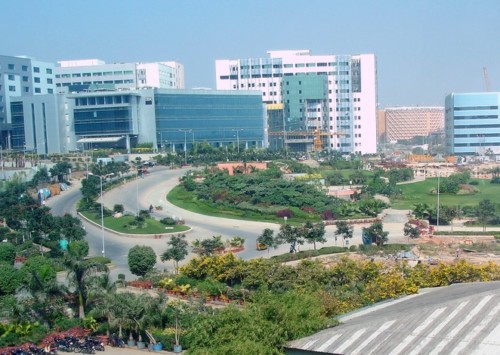Decoding 30 steps ahead of Ease of Doing Business

India’s benchmark indices, BSE Sensex and Nifty, scaled new record highs on Wednesday after India’s ranking rose 30 notches to 100 in the ease of doing business survey
India jumped 30 spots to land on the 100th rank in the global rankings of the World Bank’s Ease of Doing Business index; however, the ambiguity regarding doing business in the country as a whole still remains.
According to the 2018 World Bank Report, India has leapt 30 ranks from its previous position 130 in 2017. Titled “Reforming to Create Jobs”, the report evaluated the business performances of 190 economies over 10 indicators – Starting a Business, Dealing with Construction Permits, Getting Electricity, Registering Property, Getting Credit, Protecting Minority Investors, Paying Taxes, Trading across Borders, Enforcing Contracts and Resolving Insolvency. The report captures reforms implemented in 190 countries from June 2, 2016, to June 1, 2017.
India with a population of 1.3 billion was surveyed upon two major business cities – Mumbai and Delhi, unlike just Mumbai, as was the case pre-2016. The results show India as one of the top 10 improvers in this year’s assessment, having implemented reforms in 8 out of 10 Doing Business indicators. India is the only large economy this year to have achieved such a significant shift.
#India has improved the most globally — with record number of 8 #reforms: https://t.co/hmNPFPS635 #DoingBiz pic.twitter.com/TwmUE67eQT
— World Bank (@WorldBank) November 1, 2017
China, one of the prime competitors of India and considered one of the fastest growing economies of the world has never featured in a leading rank of the global business indicator but still remains a lucrative land to attract investments from across the globe.
A flawed report card?
It is but known, that India is slightly obsessed with rankings, especially as an aggressive bid to maintain its image as a global business centre. The Economist, a biz journal said, “A favourable spot in the World Bank’s list is useful when pitching for foreign-direct investment or aid. “
The Ease of Doing Business index evaluates countries based on their performances in the business front. Now, according to the report, India performs well in the areas of Protecting Minority Investors, Getting Credit, and Getting Electricity. The country’s corporate law and securities regulations have been recognised as highly advanced, placing India in 4th place in the global ranking on Protecting Minority Investors.
Marking its 15th anniversary, the report also notes that India has adopted 37 reforms since 2003. Nearly half of these reforms have been implemented in the last four years. States Annette Dixon, Vice President, World Bank, South Asian region, “Having embarked on a strong reform agenda to improve the business environment, the significant jump this year is a result of the Indian government’s consistent efforts over the past few years. It indicates India’s endeavour to further strengthen its position as a preferred place to do business globally.”
Historic jump in ‘Ease of Doing Business’ rankings is the outcome of the all-round & multi-sectoral reform push of Team India. pic.twitter.com/DhrEcuurgi
— Narendra Modi (@narendramodi) October 31, 2017
These reforms are assessed by the World Bank pertaining to their effectiveness in Mumbai and Delhi, both of which are metropolitans. Now, the survey only considers the country’s laws and regulations and is not based on an assessment of actual businesses; which means that it takes into consideration the laws and regulations that are to be implemented but does not take into consideration its actual execution in real time. How the businesses pragmatically operate based on these laws is very different from their projection in the report.
According to the index, apart from improving on the 4 factors, namely Protecting Minority Investors, Getting Credit, Getting Electricity and Paying Taxes, the improved conditions for doing business in India has also been resultant of Resolving Insolvency, another key parameter of assessment.
Interestingly, there is an 11th parameter of the Doing Business Report that was consequently left out this year – labour market regulation. The Economist argues, “A disputed labour-market gauge that looked at the ease of hiring and firing workers and the flexibility of working hours were cut from the survey in part to counter such criticism.”
However, even counting the 11th one, the parameters for judging do not take into account the workability of these, thus leaving it incomplete. For example, India ranks high on Getting Electricity but there is no parameter to judge whether the electricity obtained for the purpose of the business is stable or whether the power source is reliable. Similarly, the survey’s credit-market measure is based in part on how well the legal rights of borrowers and lenders are protected; it is not a measure of how easy it is to get loans or how wisely credit is allocated.
Growth Comparisons
The report states that India lags in areas such as Starting a Business, Enforcing Contracts, and Dealing with Construction Permits. In fact, the time taken to enforce a contract is longer today, at 1,445 days, than it was 15 years ago (1,420 days), placing the country in 164th place in the global ranking on the Enforcing Contracts indicator. In Starting a Business, India has reduced the time needed to register a new business to 30 days now, from 127 days 15 years ago. However, the number of procedures is still cumbersome for local entrepreneurs who still need to go through 12 procedures to start a business in Mumbai, which is considerably more than in OECD high-income economies, where it takes five procedures on average. Similarly, procuring a business license has always been a hectic procedure in India, one that especially baffles small businesses and start-ups.
K. Sinha, a budding entrepreneur from Mumbai said, “It is relatively difficult to set up a business here in India, given the amount of paperwork and hassles. Even though it is exciting to see India make it to 100, what the start-ups and small businesses like to see is the trickling down of the results and benefits on a regular functional basis.”
For policy-makers, knowing where their economy stands in the aggregate ranking on the ease of doing business is useful. In terms of South Asia, Bhutan ranks 75th and is leading from the region, followed by India on 100, Nepal on 105, Sri Lanka on 111 and Maldives on 136. Pakistan, Bangladesh, Afghanistan ranks 147, 177 and 183 respectively with the Regional Average rank being 129.
Considering Starting a Business as an indicator of ease of doing business, India ranks 156 below the regional average of 110 with Maldives leading at 68.
India’s GDP growth reflects a hopeful 7.1 pc while the FDI figure show USD 43.5 billion owing to a favourable atmosphere for new businesses; however, the country’s performance in 2018 will be an interesting observation given the implementation of Goods and Services Tax (GST) from July 1.
We WANT India to progress. But what will a 6-slab, 3-tax GST w/most complicated filing system do to our Ease of Business ranking next year?
— Shashi Tharoor (@ShashiTharoor) October 31, 2017












